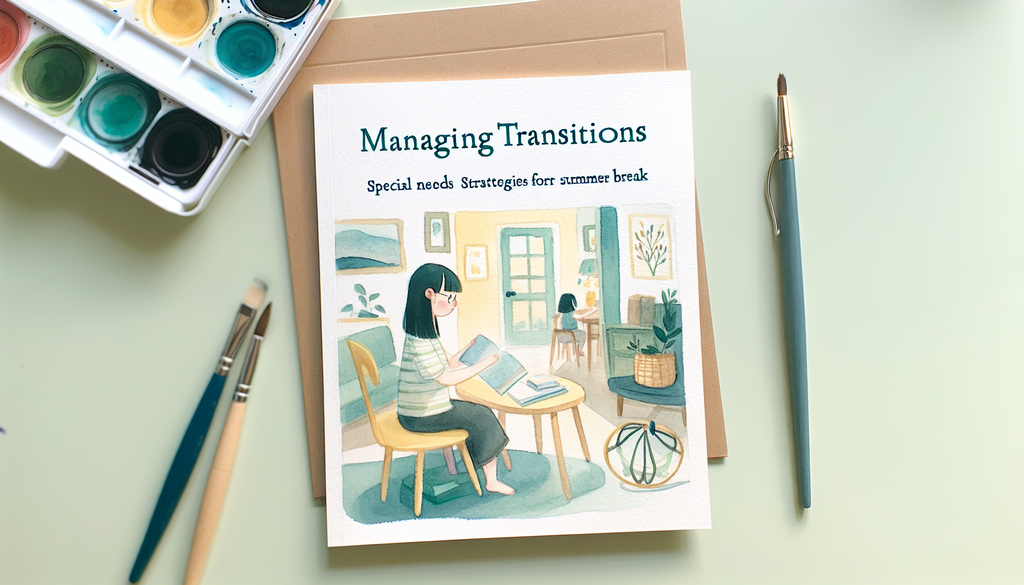Managing Transitions: Special Needs Strategies for the Summer Break

Hello, parents and caregivers! The switch from school year to summer can be challenging, especially for our beloved kiddos with special needs. Today, we will discuss strategies, tips, and insights to help your family make a smooth transition.
Why do Transitions Cause Anxiety?
Transition periods can be tough for children with special needs due to unpredictability and changes in routine. Some children may struggle with adjusting to new routines, saying goodbye to classmates, teachers, or adjusting from a structured school day to the more relaxed summer break. Understanding Your Child’s Behavioral Triggers can help you manage these situations better.
Preparation is Key
Start preparing for the summer break a few weeks before. Gradual adjustments can help ease your child into the summer schedule. Create visual timetables or use apps Tech to the Rescue: The Best Apps for Special Education to help your child understand the changes.
Consistency & Routine
Maintaining a routine during the summer break Autism and Family Life: Navigating Daily Routines can be beneficial. Having a structured day can help reduce anxiety and keep your child engaged.
Encourage Social Interaction
Summer is a great time for your child to interact and make friends with different age groups and abilities. You can join support groups, play dates or set up group activities with neighbors and siblings Strengthening Family Bonds: Activities for Siblings of All Abilities.
Create a Balance
It’s important not to overlook downtime. Encourage hobbies like reading, painting, or gardening. You can also introduce DIY projects Crafting Success: DIY Projects for Gifted and Special Needs Kids to engage your child creatively.
Don’t Forget Skills Maintenance
To prevent the summer slide, make sure your child gets a refresher of what they learned during the school year. This can be through fun, educational activities Making Math Fun: Games for Gifted Young Mathematicians or reading and writing exercises.
Seek Professional Advice
Remember to involve your child’s teachers, therapists, or counselors in your planning process. Remember, it takes a village, and everyone wants your child to succeed and grow!
Transitions may be difficult, but they are also a part of life. It’s about taking one small step at a time. As a parent, your patience, understanding, and love can do wonders in helping your child navigate these periods. Good luck, and happy summer! Remember, with some planning and a lot of love, summer break can be a fantastic time of growth, learning, and most importantly—fun!